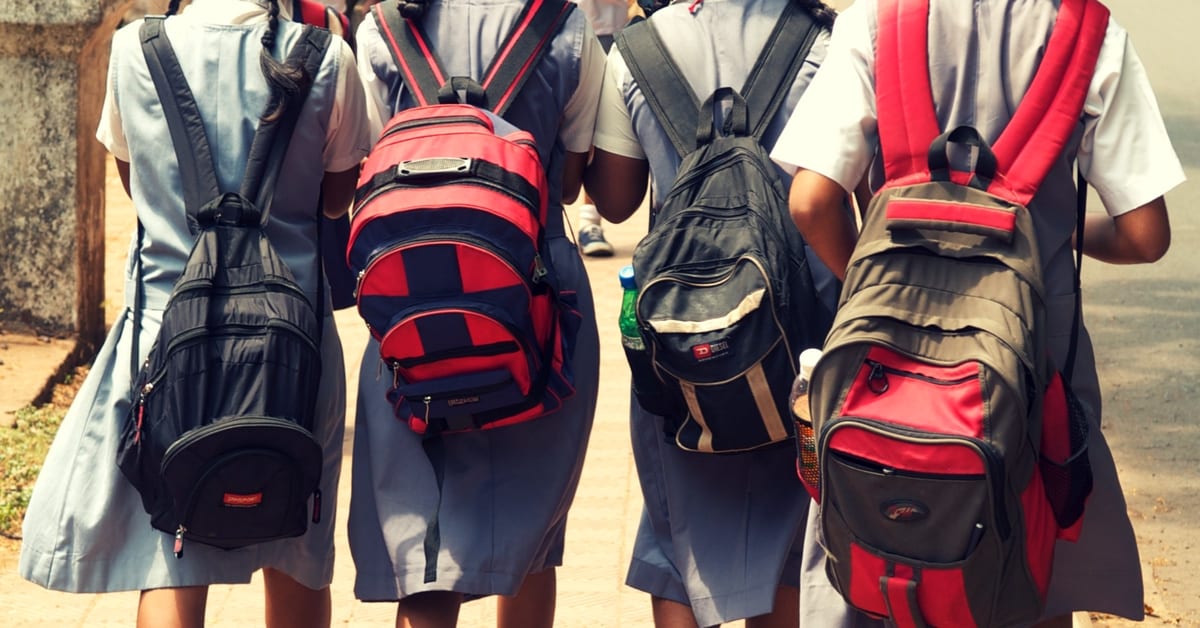If you're dealing with ongoing discomfort, stiffness, pain, or restricted movement, you may find yourself…

How to Choose the Right School Backpack: A Parent’s Guide
Why the Right School Backpack Matters for Spine Health
Selecting the right school backpack is one of the most overlooked health decisions parents make. While it may seem like a minor detail, the backpack your child carries daily can have a significant impact on their posture, spinal health, and overall wellbeing.
Children carry their backpacks for long periods each day — to and from school, between classes, and often during extracurricular activities. Over time, this repetitive strain can accumulate, especially if the bag is poorly designed or improperly fitted. Because their bodies are still growing and developing, children are particularly vulnerable to spinal stress and postural imbalances. That’s why investing time in choosing the right backpack is not just about comfort — it’s about protecting their long-term musculoskeletal health.
Why Choosing the Right Backpack Matters
Heavy backpacks are a likely contributor to the growing number of musculoskeletal complaints seen in school-aged children. These bags, often overloaded and poorly fitted, place daily stress on a child’s developing spine and nervous system.
Research shows that up to 90% of children have poor posture while carrying a backpack — yet alarmingly, 50% of parents believe their child’s posture is fine. This gap in understanding highlights the importance of education and awareness around proper backpack use and fitting.
If left unaddressed, prolonged use of an ill-fitting or overloaded backpack can lead to:
-
Muscle strains and fatigue
-
Postural changes, such as rounded shoulders or a forward head posture
-
Loss of the normal neck curve (cervical lordosis)
-
Long-term spinal stress and nervous system interference

Avoid These Common Backpack Mistakes
One of the biggest mistakes parents make is purchasing a backpack that’s too large, hoping their child will “grow into it.” However, this often leads to overpacking — and children with smaller frames may not be physically developed enough to carry that extra weight safely.
Additionally, with the rise in screen time and prolonged sitting, children’s spines are already under strain. Adding an ill-fitting or overloaded backpack only worsens the issue.
Backpack Buying Tips for Parents
When you’re shopping for a school backpack, here’s what to look for to support your child’s spine and posture:
-
Choose the Right Size
Look for small to medium-sized bags that suit your child’s frame. More room often leads to more unnecessary items being packed. -
Look for Professional Endorsements
Seek quality brands endorsed by professional bodies. For example, the Chiropractors’ Association of Australia endorses the Chiropak, which is specifically designed to reduce stress on growing spines. Similarly, the Australian Physiotherapy Association endorses the Spartan Physiopak, which is ergonomically designed to promote healthy posture and evenly distribute weight. -
Wide, Padded Shoulder Straps
Ensure straps are wide and thick to distribute weight evenly and reduce pressure points. Encourage your child to use both straps—no slinging the bag over one shoulder. -
Proper Bag Positioning
The backpack should start just below the shoulders and end no lower than the top of the buttocks. A bag hanging too low can shift the center of gravity backward and lead to poor posture. -
Weight Guidelines
The total backpack load should weigh no more than 10% of your child’s body weight. Heavier items should be packed closest to the spine to keep the weight near the body’s center of gravity. -
Use Compartments and a Waist Strap
Multiple compartments allow even weight distribution. A waist strap is especially helpful—it shifts some of the load to the more stable pelvis and reduces strain on the neck and shoulders.

What to Do If Your Child Already Has Pain or Postural Issues
At Family Life Chiropractic in Newcastle, we’ve been helping families manage neck and back issues related to backpack use for years. A heavy school bag, combined with extended sitting and screen use, can place significant stress on a growing spine.
If you’ve noticed your child struggling with posture, discomfort, or fatigue after school, it may be time for a spinal check-up or a backpack assessment.
Need Help Choosing the Right Backpack?
We’re here to help. Whether it’s fitting your child’s current bag, providing ergonomic advice, or assessing posture-related concerns, our experienced Newcastle chiropractic team can guide you.
Book an appointment today or call us for support in ensuring your child’s school year starts with the right kind of load—one that supports their spine, not stresses it.



